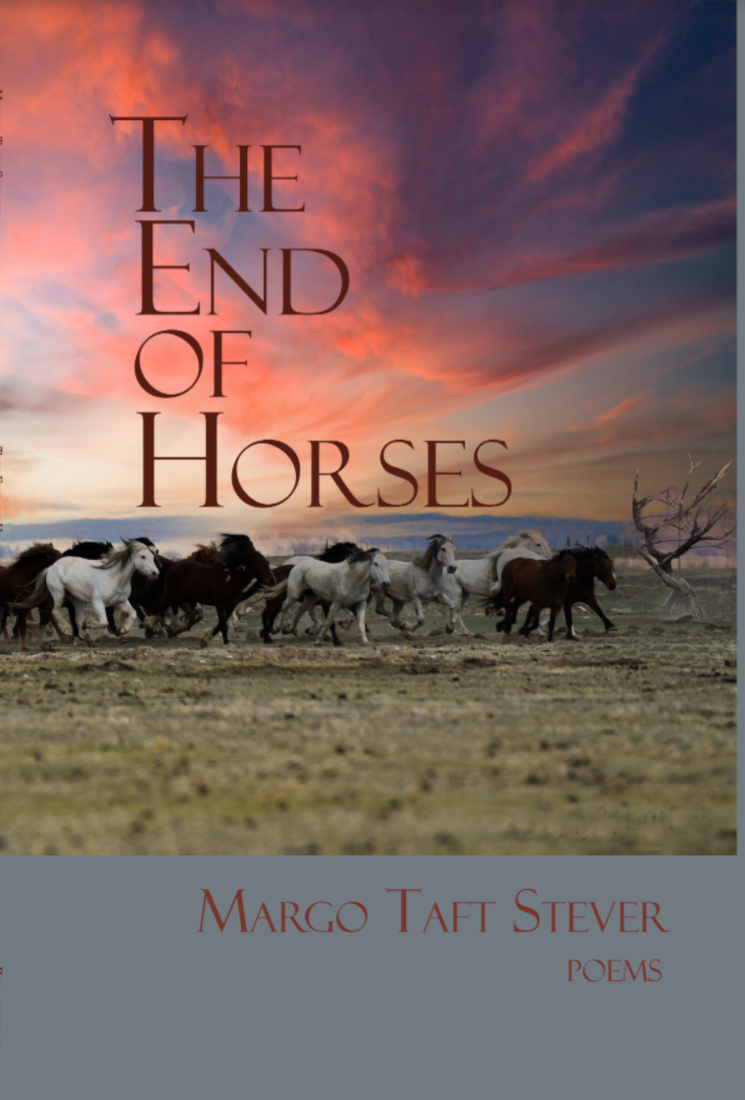 Margo Taft Stever is proud to announce that in April, 2022, Broadstone Books published her third full-length collection, The End of Horses. One of three winners of a 2022 Pinnacle Book Achievement Award in Poetry and a 2023 NYC Big Book Award Distinguished Favorite in the Category of Poetry, the book focuses on the sixth extinction, one of the greatest mass extinctions in the history of the earth and the only one precipitated by humans.
Margo Taft Stever is proud to announce that in April, 2022, Broadstone Books published her third full-length collection, The End of Horses. One of three winners of a 2022 Pinnacle Book Achievement Award in Poetry and a 2023 NYC Big Book Award Distinguished Favorite in the Category of Poetry, the book focuses on the sixth extinction, one of the greatest mass extinctions in the history of the earth and the only one precipitated by humans.
The End of Horses is available for sale here.
PRAISE FOR THE END OF HORSES
Margo Taft Stever’s The End of Horses shows an important poet working at the height of her powers. “Treehouse” opens with lines that describe Stever’s poetry, in both subject and taut form: “Something about roots, / bone-like, tenacious, / that grip the moving ground.” Stever has always painted indelible portraits of the natural world—its violence and vulnerability, as well as its beauty. In this book, readers will see a deepening of her long eco-poetic project, and of her interest in the human animal, the tender and flawed human family alive on fraught Earth.
—Suzanne Cleary, Author of Crude Angel, BkMk Press of Missouri-Kansas City
The poems in Margo Taft Stever’s The End of Horses mourn our irreversible ecological change, in elegiac turns and odes to the beauty that remains. The speaker’s past is recast through a political lens, turbulent and haunting in retrospect. Stever’s ecopoetry emphasizes our enmeshment with tragedies we have created. Powerful, terrifying, and gorgeous, these poems are, above all, fearless.
—Denise Duhamel, Author of Second Story, University of Pittsburgh Press
Margo Taft Stever’s “‘Nothing about you lacked/ intensity,’ Margo Taft Stever writes in a poem addressed to her dead mother. The same could be said about the poems in Stever’s new book, The End of Horses. Whether directing her attention to the natural world, her own past, or the confounding aspects of society, her taut phrasing and incisive imagery are always invigorating, even (or perhaps especially) when her lyricism becomes tinged with a sense of unease—to the point, sometimes, that the images begin to feel like omens. The urgency becomes particularly acute in the poems about animals and their plight at the hands of humans, as she both records and honors ‘the almost gone, the forgotten.’”
—Jeffrey Harrison, Author of Between Lakes, Four Way Books
